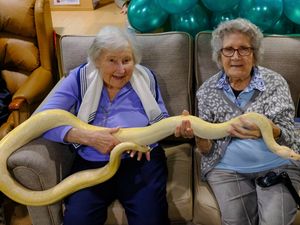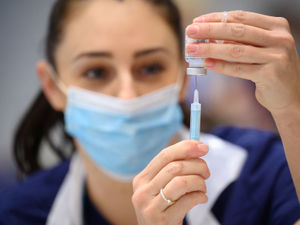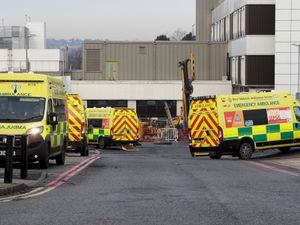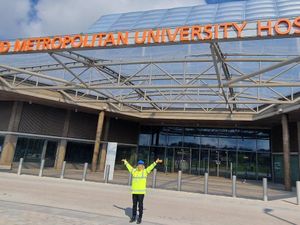Covid-19: Unlimited care home visits allowed as England lifts face mask rules
Some shops, including Sainsbury’s, John Lewis, Waitrose and Morrisons, have said they will continue to ask customers to wear face masks.

Limits on visitors to care homes in England will be scrapped from next week as the country moves towards living with coronavirus.
From January 31, those living in care homes will be able to have unlimited visits from family and friends, while self-isolation periods will also be cut, the Department for Health and Social Care has said.
It comes as the relaxation to Plan B rules comes into force, with face coverings and Covid passes no longer legally required in England.
Health Secretary Sajid Javid has said the measures can be lifted due to the success of the Covid-19 vaccine programme and falling rates of the Omicron variant of Covid.
Prime Minister Boris Johnson has signalled his intention to start treating Covid more like flu, and has said wearing a face mask will now be a matter of personal judgment.
Public health guidance urging people to wear face coverings in crowded and enclosed spaces when coming into contact with strangers will still remain in place.
Some shops, including Sainsbury’s, John Lewis, Waitrose and Morrisons, have said they will continue to ask shoppers to wear face masks.
Rail operators are also telling customers to continue wearing them, with London Mayor Sadiq Khan saying masks are still mandatory on Transport for London (TfL) services.
Under the scrapping of Plan B, larger venues and nightclubs will now also be able to choose whether to force visitors to show Covid passes before attending events.
Regarding the new rules for care homes, self-isolation periods will be cut from 14 days to 10 days for those who test positive and homes will only have to follow outbreak management rules for 14 rather than 28 days.
People can also be released from isolation early if they test negative on days five and six, in line with the wider public.
Isolation periods for those in care following an emergency hospital visit are also being reduced from 14 to 10 days.
In addition, workers will be asked to start using lateral flow tests before their shifts instead of weekly PCR tests from February 16.
This comes as 86.5% of care home residents have now had a booster vaccine.
Mr Javid said: “I know how vital companionship is to those living in care homes and the positive difference visits make, which is why we continued to allow three named visitors and an essential care giver under Plan B measures.
“Thanks to the progress we have made, I am delighted that care home restrictions can now be eased further, allowing residents to see more of their loved ones.”
Care minister Gillian Keegan said: “Thanks to the continued success of the vaccine rollout, I am delighted we can ease restrictions in care settings and allow unlimited visits to ensure people living in care homes see all their family and friends.
“The changes announced today are backed by scientists, ensuring we all have more freedoms from coronavirus, including care home residents and their families.”
Data published on Wednesday afternoon by the Office for National Statistics (ONS) shows that Covid-19 infections continue to fall in most parts of the UK, though levels are still higher than before Christmas.
England, Scotland and Wales all saw a drop last week in the number of people in private households estimated to have Covid-19.
Northern Ireland is estimated to have seen a small decrease in infections, though the ONS described the trend there as “uncertain”.
The latest figures suggest the virus is no longer as prevalent as at the start of the year, when all four nations saw a record level of infections.
An estimated one in 20 people in private households in England are likely to have had Covid-19 in the week to January 22, or 2.6 million people, down from 3.0 million the previous week.
In Scotland, around one in 30 is estimated to have had Covid-19 last week, or 163,600 people, down from 236,600.
In Wales, the estimate is also one in 30, or 99,500 people, down from 112,100.
For Northern Ireland, the latest estimate is one in 20, with the total people testing positive down slightly from 104,300 to 96,500.
The number of Covid-19 infections in the UK, which is estimated every week by the ONS, is a more reliable guide to the level of coronavirus across the country than the number of new cases reported every day by the Government.
This is because the number of infections provides a snapshot of the prevalence of Covid-19 within the entire community population of the UK, and estimates the percentage of people who are likely to test positive for the virus at any one point – regardless of when they caught the virus, if they have had it before and whether they have symptoms.





